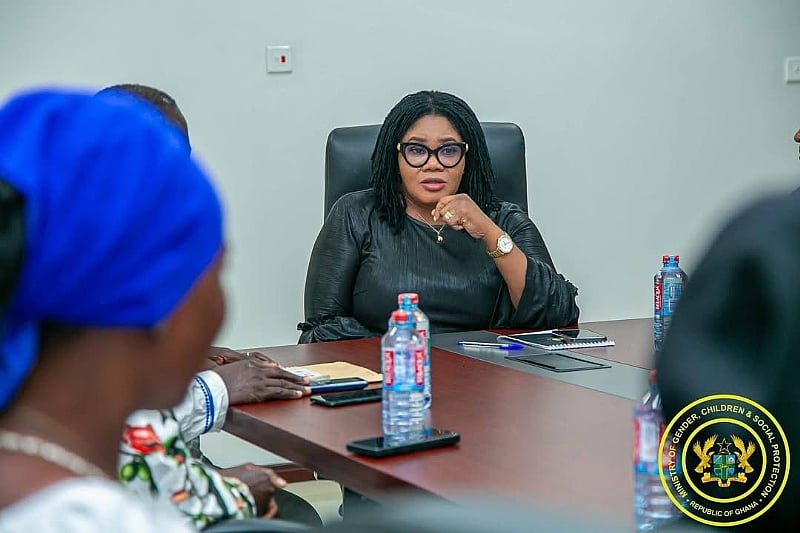The Ghanaian government, through the Ministry of Gender, Children and Social Protection, has initiated the process of establishing the Gender Equity Committee, a crucial body tasked with overseeing the implementation of the groundbreaking Affirmative Action (Gender Equity) Act of 2024. This announcement, made during a national dialogue in Accra, comes nearly a year after the Act’s passage and addresses growing concerns about the government’s commitment to its execution. The dialogue, organized by the Ghana Center for Democratic Development (CDD-Ghana) in collaboration with the Global Center for Pluralism (GCP) and the Affirmative Action Coalition, served as a platform to address the delays in operationalizing the Act and to outline the steps being taken to ensure its effective implementation.
The Affirmative Action (Gender Equity) Act, a product of decades of advocacy by civil society organizations, women’s groups, and gender equality activists, aims to significantly increase women’s representation in leadership positions. The Act mandates a phased approach, targeting a minimum of 30% female representation by 2026 and ultimately achieving parity, or 50% representation, by 2034. This progressive increase aligns with the global Sustainable Development Goal 5, which promotes gender equality and empowers all women and girls. The delay in establishing the necessary structures for implementation, including the Gender Equity Committee, had raised concerns among stakeholders about the government’s commitment to achieving these ambitious targets.
Responding to these concerns, the Ministry of Gender, Children and Social Protection affirmed its commitment to the Act’s implementation. A representative of the ministry, speaking on behalf of Gender Minister Dr. Agnes Naa Momo Lartey, announced that significant progress has been made in constituting the Gender Equity Committee. The list of nominees for the committee has been compiled and submitted to the Office of the President for review and approval. This step marks a crucial milestone in the operationalization of the Act, as the Committee will play a pivotal role in guiding and monitoring compliance across both public and private sectors. The Committee’s mandate includes ensuring that institutions adhere to the stipulated quotas for women’s representation in leadership roles.
Further demonstrating its commitment to the Act’s implementation, the ministry has developed a strategic plan for the Gender Equity Committee’s Secretariat. This plan, which outlines the resources and support required for the Secretariat’s effective functioning, has been submitted to the Ministry of Finance for funding. The establishment of a well-resourced Secretariat is essential to support the Committee’s work and ensure the smooth implementation of the Act’s provisions. This proactive approach signals the government’s intention to provide the necessary infrastructure for the Act’s success.
In addition to these measures, the Ministry of Gender, Children and Social Protection has initiated the process of drafting a Legislative Instrument (LI) to provide a legal framework for enforcing the Act’s provisions. Initial consultations with the Office of the Attorney General have commenced, and the ministry has committed to conducting nationwide consultations to gather input from various stakeholders. This participatory approach underscores the government’s commitment to inclusivity and ensures that the LI reflects the diverse perspectives and needs of Ghanaian society.
The Affirmative Action (Gender Equity) Act of 2024 represents a significant step towards achieving gender equality in Ghana. The establishment of the Gender Equity Committee, the development of a strategic plan for its Secretariat, and the initiation of the LI drafting process are crucial steps towards the Act’s effective implementation. The government’s commitment to these processes, coupled with the ongoing stakeholder engagement, signifies a promising start towards realizing the Act’s ambitious goals and ultimately achieving gender parity in leadership positions. The nationwide consultations for the LI development will be crucial in ensuring that the implementing regulations are robust, practical, and reflective of the needs and realities on the ground. The timely allocation of resources to the Committee’s Secretariat will further solidify the government’s commitment and facilitate effective monitoring and enforcement of the Act’s provisions.


